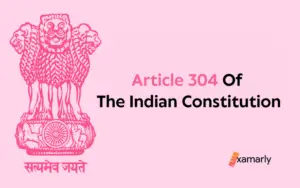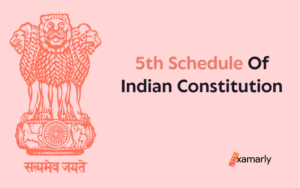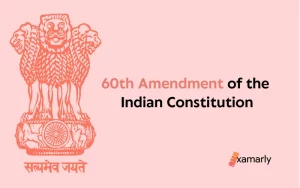Article 235 of the Indian Constitution talks about who has control over Subordinate courts.
The said Article is contained in Chapter VI titled “Subordinate Courts” of Part VI of the Constitution of India.
This page provides a piece of valuable information regarding the forenamed Article.
What Is Article 235 Of The Indian Constitution
The High Court shall have jurisdiction over all district courts and all courts subordinate thereto, including the authority to appoint or promote judges and other members of the judicial service of a State who hold positions below that of the district judge, as well as the authority to grant leave to such judges and other members. However, nothing in this article will be interpreted as denying any such individual the right to appeal that he may have under the law regulating the terms of his service or empowering the High Court to deal with him otherwise than in conformity with the terms of his service specified under such law.
Subordinate Courts
The High Court is the highest authority in any state’s judicial system. There are a number of lower courts that together make up the subordinate judiciary, which is below the High Court.
The name “subordinate courts” comes from the fact that these lower courts fall under the control of a higher court in the state. There are several different kinds of subordinate or lower courts housed in each and every district in India. There are three types of courts:
- Civil courts,
- Revenue Courts, and
- Criminal Courts
Case: Ganesh Ram Berman v. High Court of Chhattisgarh & Anr.
According to a recent ruling by the Chhattisgarh High Court, the District Judge’s appointment cannot be terminated or punished by a rank reduction under Article 235 of the Indian Constitution, which gives the High Courts control over lower courts. According to Article 311(1) of the Constitution, this authority rests with the Governor.
In any case, the phrase “control” in the Article grants the High Court the authority to conduct investigations and disciplinary control and to recommend the implementation of such penalty. Without a shadow of a doubt, this verdict is definitely progressive, strong, and pragmatic.
Reference: https://www.legalservicesindia.com/law/print/2564
In A Nutshell
The courts that are beneath the High Court are referred to as subordinate courts. Who controls Subordinate courts is spoken about under Article 235 of the Indian Constitution. The word “control” in the Article gives the High Court the power to undertake inquiries, exercise disciplinary control, and recommend the imposition of a specific punishment.
In the interest of further readings:
| Article 238 Of The Indian Constitution | Article 218 Of The Indian Constitution |
| Article 173 Of The Indian Constitution | Article 174 Of The Indian Constitution |
FAQs On Article 235
Which Article Deals With The Control Over Subordinate Courts In The Constitution Of India?
Article 235 of the Indian Constitution gives power to the High Courts to exercise control over district courts or courts that are inferior to them. In other words, Control over all Subordinate courts resides in the hands of the highest court of the State.
What Are Subordinate Courts?
According to the definitions of a variety of articles, subordinate courts are the judicial courts that are located within the territorial jurisdiction of the high court of the state and are subordinate to it. The name “subordinate courts” comes from the fact that these courts fall under the jurisdiction of the state high court. They operate at district and lower-level courts, which are below and under the jurisdiction of the supreme court.
Who Controls All The Subordinate Courts In The State?
High Court has the authority to control all the courts which are subordinate to It in the States of India.
What Article 311(1) Specify?
According to Clause 1 of Article 311, no employee of the Union’s civil service, an all-India service, a State’s civil service, or any other government employee will be terminated or stepped down by any authority beneath the one who employed them.






